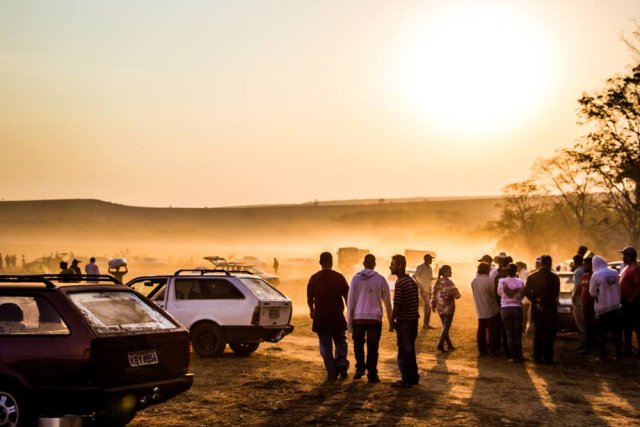
More than 3000 landless families occupied the Santa Monica farm in Brazil on August 31.
The farm, registered in the name of businessperson and Brazilian Democratic Movement Party Senator Eunicio Oliveira, is a complex of more than 20,000 hectares. It is self-declared as unproductive.
The occupation was organised by the Landless Workers' Movement (MST), a powerful Brazilian social movement that fights for land for the poor.
Oliveira is a candidate for governor of the state of Ceara. He is considered the richest candidate for governor in Brazil, with declared assets worth about R$100 million (almost A$50 million).
Besides investments in the pension fund of Banco do Brazil — worth R$1.5 million — and Agribusiness Credit Bills of the same bank (R$ 2.1 million), the senator has more than 40% of his reported wealth in rural properties in the state of Goias.
The state leaders of MST-Goias released the statement below on August 31. It is reprinted from www.mstbrazil.org.
* * *
On Sunday, August 31, about three thousand families of the Rural Workers Landless Movement (MST) occupied the Santa Monica Farm, one of the properties of the candidate for governor and senator from the state of Ceara, Eunicio Oliveira.
The sentator's properties are located between the municipalities of Abadiania, Alexania and Corumba, 150 kilometres from Brasilia and 120km from Goiania. According to data collected by the MST, all the senator's properties are more than 20,000 hectares and are self-reported as unproductive.
The MST denounces the scandalous association of Oliveira with the expulsion of dozens of peasant families in the region. The sole intention of these acts is to promote land speculation in a region where land prices have been rising in recent years.
As well as vast expanses of unproductive land, some properties are leased for the production of soybeans and corn. This demonstrates the exclusively financial interest the senator has with the area.
This is a clear example of how the Brazilian state has deep ties with landowners and agribusiness. The national parliament is dominated by large farmers, who make up more than one third of the total number of deputies and senators. There are fewer than a dozen peasant representatives.
It is precisely these large farmers who destroyed the forest law and are now moving to destroy indigenous lands as well as defending the easing of labour laws and preventing stricter regulation of pesticides.
Despite the power of agribusiness, which influences the electoral process and finances the campaign of the leading candidates for executive and legislative positions, the strength of our occupation demonstrates that this death model is living on borrowed time.
As the largest occupation held in the state of Goias in the past 10 years, it is made up of young men and women who demonstrate the relevance of agrarian reform for a new development project for the country. Such a project must be based on the real needs of the working people in Brazil.
With this occupation, the MST reaffirms its commitment to Brazilian society to fight for the end of the large estates, against agribusiness and for the production of healthy food for the people of the city and countryside.
The failure to implement agrarian reform only benefits a small elite who only defend their interests, not those of Brazil. So we continue to struggle.
And we advise the senator, and the state and federal powers: We came to stay, we want agrarian reform now! Struggle and build people's agrarian reform!
Like the article? Subscribe to Green Left now! You can also like us on Facebook and follow us on Twitter.